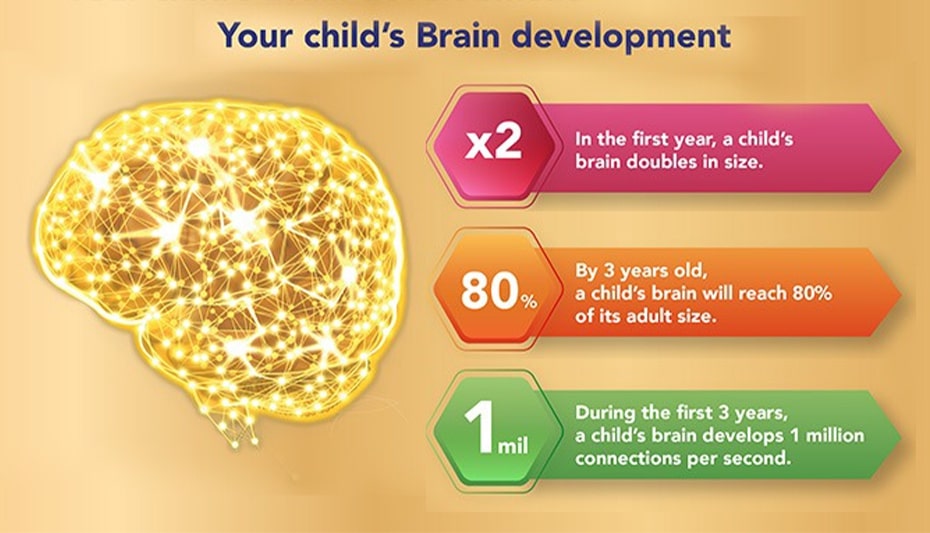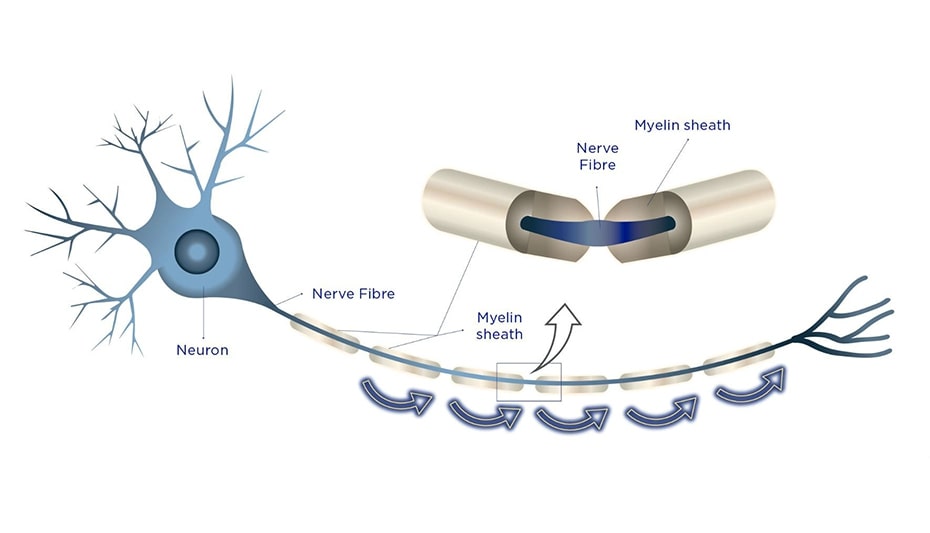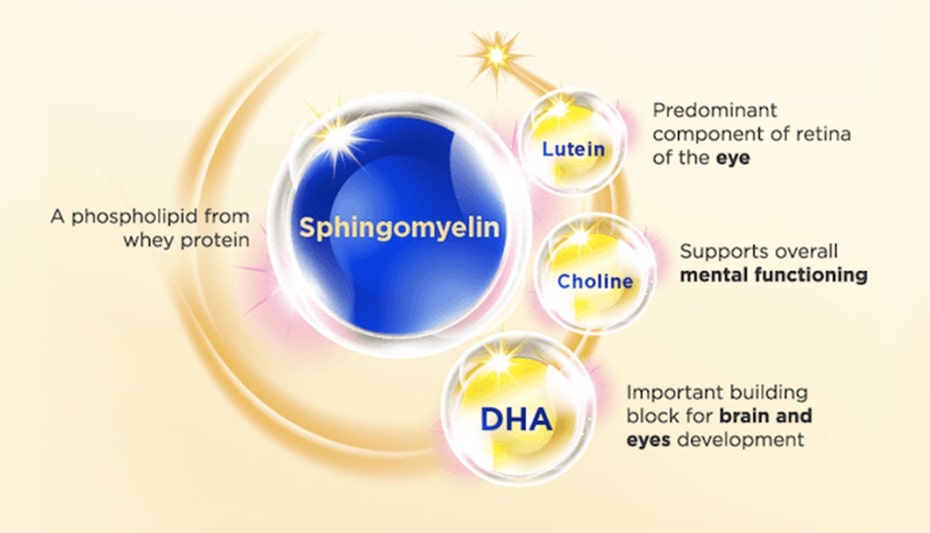
Why is myelination important in brain connections
To give the growing brain a boost, the right nutrition is key.
Babies are incredible (and adorable!) learning machines. From crying as soon as they are born, they rapidly discover how to communicate more effectively – learning ABC’s, the names of people and things, and concepts such as more, yes and no.
These developmental milestones all point to the rapid growth that is taking place inside their brains. Each face, word and symbol understood corresponds to neurons connecting with other neurons. As parents to these amazing babies, we can help this process along with the right baby brain development nutrition.
From birth until the age of three, more than a million neuron connections per second are made!1 By the time a child is three years old, 80% of a child’s brain is already developed.

Keep on reading to learn how baby brain development nutrition can help you to raise an exceptional child.
The Impact of Proper Nutrition
The impact of nutrition on a child’s brain2 is significant. A deficiency in nourishment leads to poor brain growth. So this can result in long-term behavioural and mental deficits. Because of such deficiencies, it is vital to ensure that the right nutrients are available during the crucial period of early childhood for optimal brain development.
How Brain Connections Work
The powerhouse of your exceptional child is his or her brain. And when it comes to the brain, the connections in it, between neurons, are crucial. Famously, examinations of Albert Einstein’s brain discovered that the physicist’s brain was significantly more connected3 than the average male’s.

How do brain connections work? Neurons (brain cells) connect with each other and transmit messages to and from different parts of the brain. They also connect the brain to other parts of the body such as the eyes and other organs used for the senses.
A connection occurs when a neuron fires impulses through its nerve fibres called the axon (the part that looks like a tail). One axon can be more than 20 centimetres long. And it can be connected to as many as 10,000 other neurons!
The Importance of Myelin in Brain Connections
Neural impulses can go faster if an axon is heavily coated with myelin, a white-coloured fatty substance. Much like the rubber coating wrapped around an electric wire, the Myelin sheath wraps around the length of the axon. Myelin makes the brain cell stronger and prevents impulses or current from “leaking out”. As a result, it increases the speed of neural impulses:4
- Axons with little or no myelin can conduct impulses up to 10m/s.
- Myelinated axons can conduct at velocities up to 150m/s!
Because this translates to how fast brain cells connect and transmit messages to each other, these velocities play a role in processing speed5 – and consequently, how fast a child learns. Studies show that myelination helps children perform mental operations faster, which can benefit memory,6 intelligence,7 and language skills.8 Therefore, one of the keys to faster learning is to increase myelination.
Baby Brain Development Nutrition: Enhancing Brain Connections

To give the growing brain a boost, the right nutrition is key. The following key nutrients support the development of brain connections:
- Sphingomyelin. 70% to 85% of the Myelin sheath is comprised of lipids.9 One integral component of myelin is the phospholipid sphingomyelin. This nutrient accounts for up to 36% of the total lipid content of breastmilk!10
- Choline. This nutrient supports overall mental functioning. It is a constituent of lecithin, which is another important lipid found in the Myelin sheath.
- Lutein. Lutein is the primary component of the retina of the eye. Good eyesight strengthens the brain as it helps to make connections between what the eye sees and their meaning.
- DHA. DHA, short for docosahexaenoic acid, is an omega-3 fatty acid that supports brain function and eye health.
These nutrients enhance brain connections by helping neurons connect faster with each other. Find out more about the important contribution nutrition makes to the brain’s development here
References:
- https://developingchild.harvard.edu/resources/inbrief-science-of-ecd/
- https://academic.oup.com/ajcn/article/85/2/614S/4649636
- https://www.telegraph.co.uk/news/science/science-news/10358973/Einsteins-genius-may-be-due-to-a-well-connected-brain.html
- https://www.ncbi.nlm.nih.gov/books/NBK10921/
- https://journals.plos.org/plosone/article?id=10.1371/journal.pone.0139897
- https://journals.plos.org/plosone/article?id=10.1371/journal.pone.0139897
- https://www.ncbi.nlm.nih.gov/pmc/articles/PMC4771819/
- https://www.ncbi.nlm.nih.gov/pmc/articles/PMC2782876/
- https://www.ncbi.nlm.nih.gov/books/NBK28221/
- https://www.sciencedirect.com/science/article/pii/S0958694617300572

